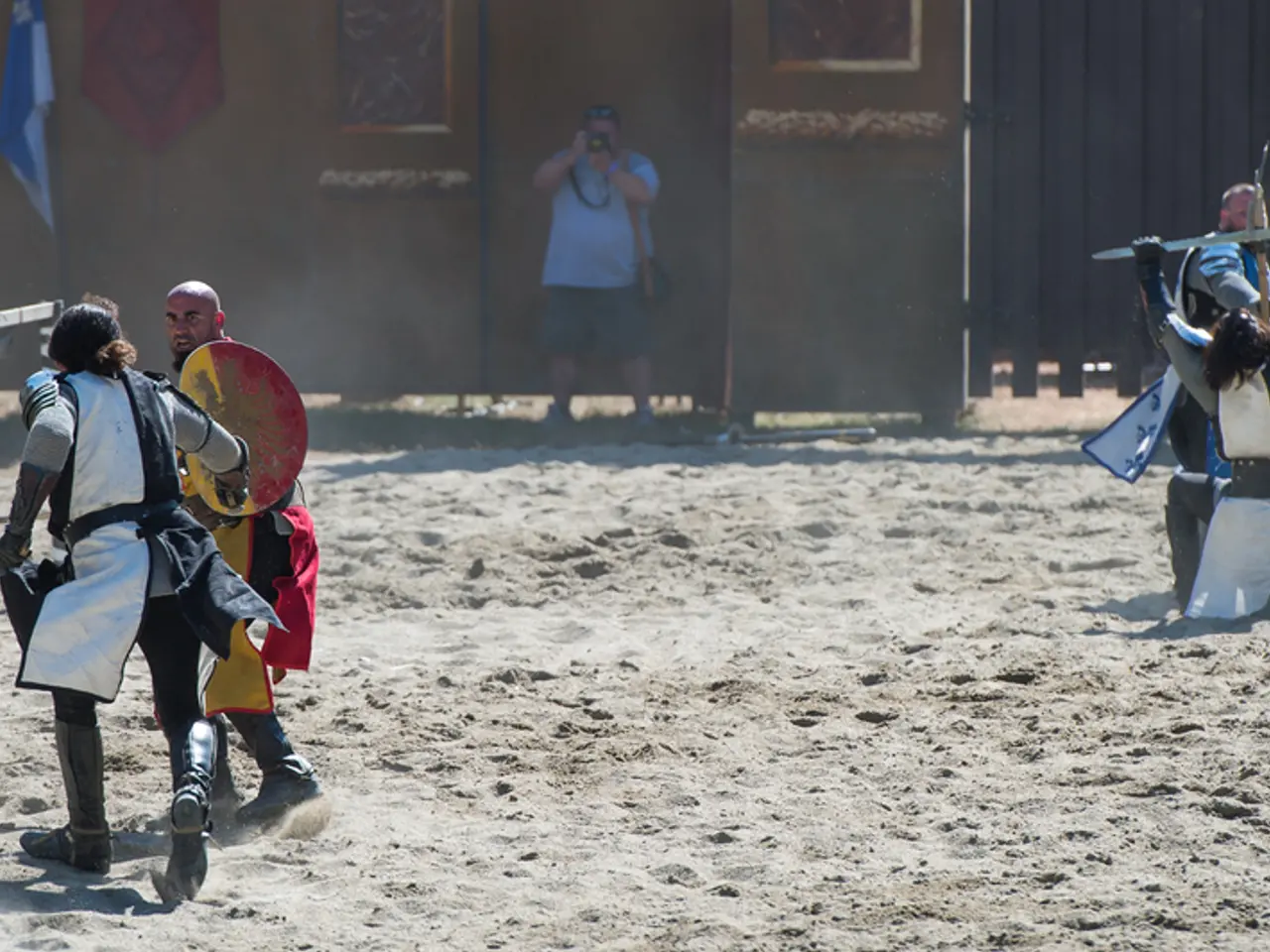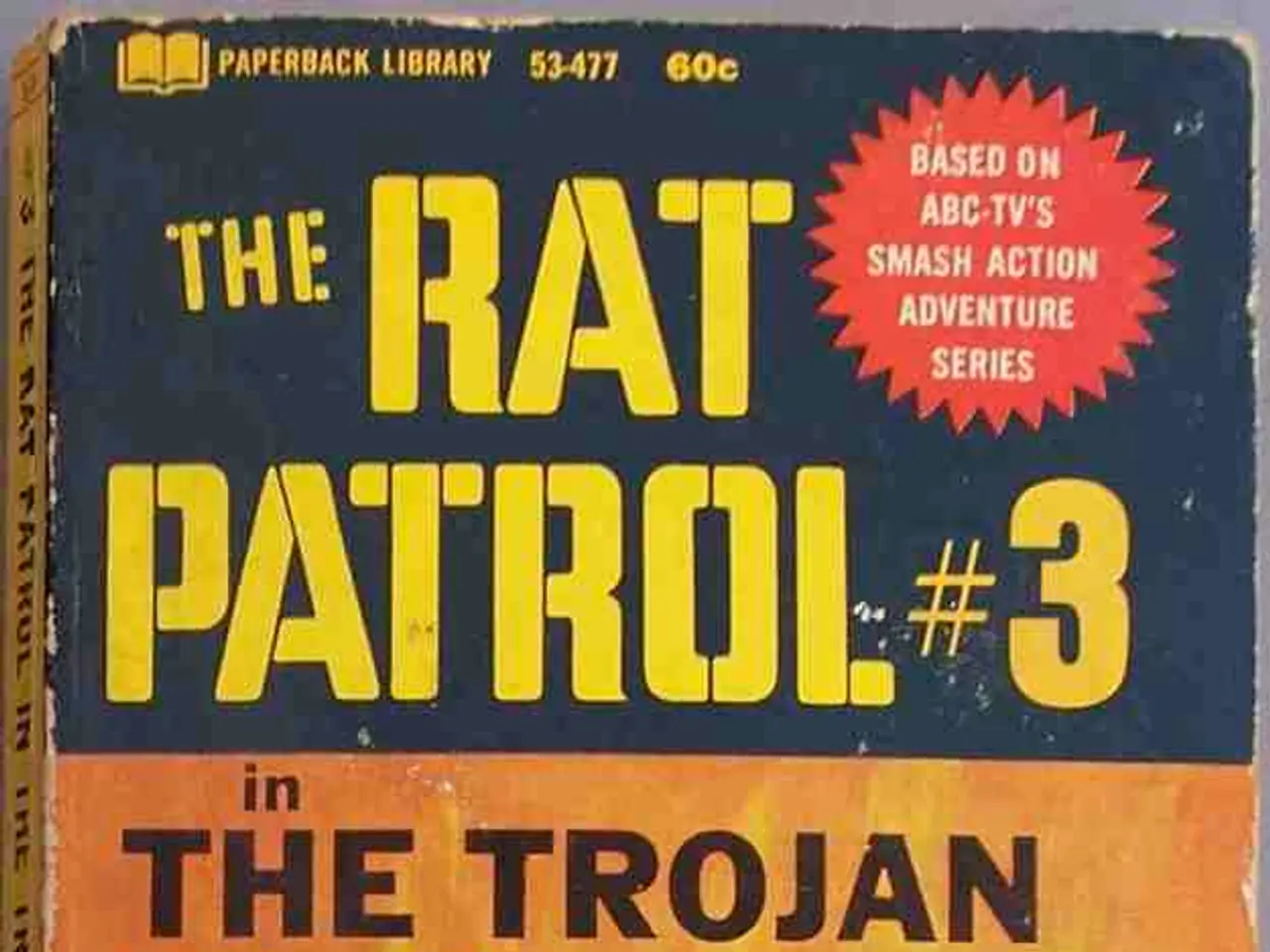Hezbollah Caught in the Crossfire: Israel Targets Commander as Tensions Flare
Hezbollah leader reportedly killed in Israel operation
In the middle of the heated Israel-Iran conflict, Hezbollah in Lebanon appears to be in the firing line once more. With threats flying back and forth, they've had enough and are now warning both Israel and the USA that messing with Iran's Supreme Leader, Ayatollah Ali Khamenei, is nothing but folly.
Israel's military announced the death of a top Hezbollah commander named Yassin Abdel Menam Ezz al-Din in southern Lebanon. According to their Twitter account, the man met his end in an airstrike. Allegedly, he had been plotting attacks on northern Israel and secretly boosting Hezbollah's artillery forces—an obvious breach of the agreements between Israel and Lebanon. The strike occurred late last night in the Nabatija region.
The Lebanese news agency NNA reported that the victim was riding a motorcycle at the time of the attack, and another individual suffered injuries from shrapnel. For quite some time now, Hezbollah has remained tight-lipped about casualties within their ranks.
Politics: A War of WordsThe ceasefire between Israel and Hezbollah, supported by Iran, has been in place since late November, but accusations of violations continue on both sides. Israel's daily military attacks in Lebanon have resulted in numerous deaths or injuries.
Threatening further action, Israel declares, "The IDF remains vigilant and will continue to thwart any attempt by Hezbollah to harm the citizens of Israel."
Khamenei Fights Back: Hezbollah Stands United supporting Iran's Supreme Leader
Meanwhile, Hezbollah makes its stance clear, in full solidarity with Iran, who has been targeted by Israel. Hezbollah regards threats against Ali Khamenei as reckless and stupid, blaming both Israel and the USA for them. In a chilling warning, they predict catastrophic fallout.
Such public threats strike a nerve with millions of Muslims across the world, believers in the "resistance" movement. The Iran-backed militia in Lebanon is more resolute than ever to uphold Khamenei's leadership and stand united behind his stance in the conflict with the USA and Israel.
Hezbollah has stayed out of the Israel-Iran war so far, though weaker than they were following their conflict with Israel last fall.
Background
Recent events in the Israel-Hezbollah conflict have been nothing short of bloody:
Casualties from Israeli Operations in LebanonBetween late May and early June 2025, Israeli operations resulted in the death or injury of numerous Hezbollah operatives in Lebanon. Notably, on May 31, 2025, an Israeli drone strike claimed the life of key Hezbollah commander Mohammad Ali Jammoul. He was instrumental in rocket and missile operations in the Nabatieh District and played a significant role in attacks against Israel during the latest conflict. Hezbollah paid tribute to Jammoul as a martyr[2].
In Iran, Israeli attacks since June 13, 2025, have resulted in an appalling loss of life. Reports show that at least 639 have been killed and 1,329 wounded, with total casualties reaching 1,968 according to a rights group report as of June 19, 2025[1].
Reactions to Khamenei’s ThreatsWhile specific responses to Iranian Supreme Leader Ali Khamenei's threats are not detailed, Israeli military action against Hezbollah operatives and Iranian targets indicates a direct response by Israel to perceived threats stemming from Iran and its allies. The ongoing Israeli military actions in Lebanon and Iran escalate the broader conflict, driven by proxy confrontations and regional rivalries[1][2].
Ultimately, the Israel-Hezbollah conflict remains volatile, marked by high casualties, Israeli and Iranian military action, and a tense atmosphere shaped by Iran's threats and Hezbollah's militant posture. Despite being weakened since the last war, Hezbollah has declared their commitment to counter any threat against Israel.
Sources: ntv.de, gho/dpa
- Iranian Nuclear Program
- Israel
- Hezbollah
- Wars and Conflicts
- Israel War
- Lebanon
- The Commission, in the midst of geopolitical tensions, has been asked to submit a proposal for a regulation on the implementation of the common fisheries policy, highlighting the importance of maintaining diplomatic and regulatory protocols even during times of war-and-conflicts.
- Meanwhile, in the general-news landscape, the ongoing Israel-Iran conflict and the threats against Iran's Supreme Leader, Ayatollah Ali Khamenei, are escalating, with both Israel and Hezbollah engaging in verbal confrontations and military actions, demonstrating the politically charged nature of the confrontation, extending beyond the immediate Middle East region.





